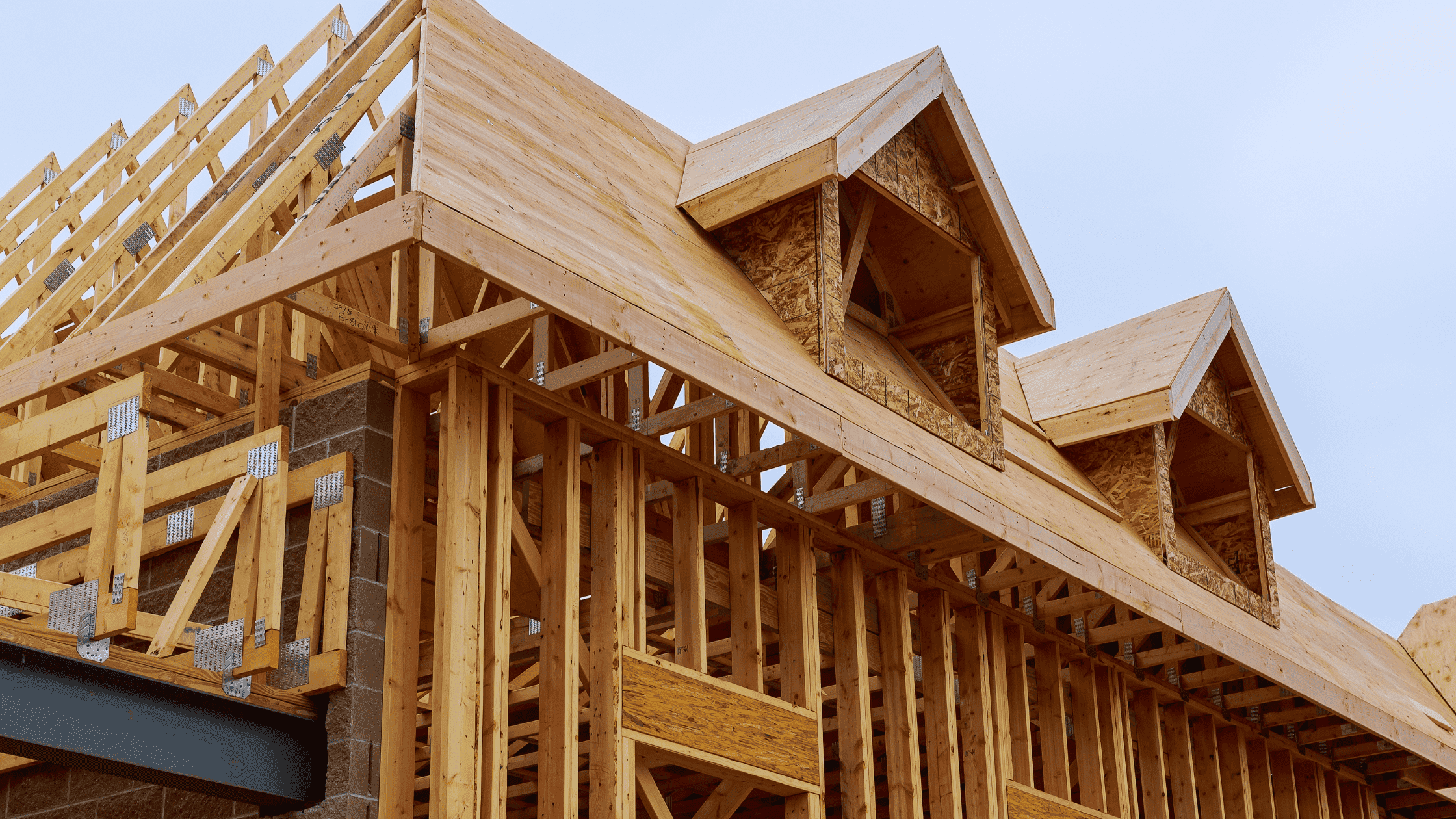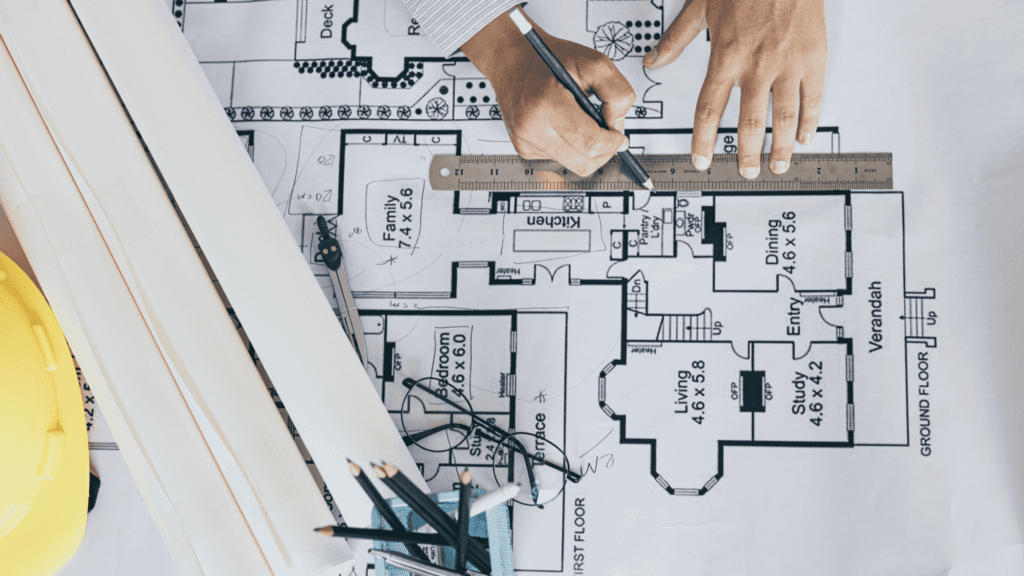
ADU Construction Denver – Top Builders 2025
Building an accessory dwelling unit in Denver has transformed from a niche housing solution into a mainstream investment opportunity. Recent zoning reforms have opened the door for more residents to take advantage of this opportunity, making ADU construction one of the city’s fastest-growing trends. These units offer homeowners new opportunities for rental income, multigenerational living, and boosting property value.
At JROC Properties, we help Denver homeowners navigate every step of the process, from design and permitting to construction and finishing. For those comparing options, see how ADUs stack up against home additions in Colorado when it comes to cost and long-term ROI.
TL;DR: ADU Construction Denver
- Denver ADU eligibility expanded from 36% to 70% of residential land.
- Building an ADU helps address the city’s 20k–70k housing deficit.
- Average ADU costs range $240k–$370k, depending on type and finishes.
- Detached, garage, and basement conversions each have unique pros/cons.
- Rental potential: up to $3,900/month short-term or ~$1,462/month long-term.
- ROI boost: ADUs increase property value by 20–35% on average.
- Work with licensed, experienced Denver ADU builders to avoid costly mistakes.
Ready to explore your ADU project? Contact JROC todayfor a free consultation on accessory dwelling unit construction in Denver.
Table of Contents

Best ADU Construction Companies in Denver: 2025 Comprehensive Guide
What Makes a Top ADU Builder in Denver
The most successful ADU Construction Denver projects share common characteristics that distinguish exceptional builders from the rest. Top-tier companies demonstratefull compliance with latest zoning and building codes, including the significant changes introduced by HB24-1152. These leading companies ensure all ADU projects strictly adhere to updated Denver and Colorado zoning requirements, including expanded lot eligibility, updated setback standards, and new rules regarding owner occupancy.
Industry professionals emphasize the importance of experience. As Mile High Construction notes,“One of the biggest mistakes homeowners make when building a custom ADU is not fully understanding the zoning regulations and permitting process. Denver has specific zoning laws… Failing to comply… can lead to costly fines, delays, or even the inability to complete the project.”Their recommendation: consult experienced designers and contractors familiar with Denver’s ADU bylaws before you start.
Premium builders demonstratetransparency in pricing and contracts, providing clear upfront quotes while avoiding hidden fees throughout the construction process. This honest communication about costs has become crucial, particularly as “many homeowners fail to account for site preparation costs, permits, or unexpected delays, leading to higher-than-expected expenses.”
Key Factors to Consider When Choosing an ADU Contractor
When evaluating denver ADU builders, start with licensing and insurance verification. Ensure the ADU company holds an active contractor’s license and carries both general liability and workers’ compensation insurance. This protects you legally and financially during the project.
Experience matters more than ever in Denver’s evolving regulatory landscape, especially when hiring for ADU Construction Denver projects. Prioritize companies with proven experience specifically in ADU construction and familiarity with local building codes, denver adu zoning map requirements, and permit processes. Elmntl.io highlights the importance of site evaluation:“Evaluate whether your lot size and shape can accommodate an ADU,”noting that lot size, slope, pre-existing structures, and required setbacks significantly affect feasibility.
Review completed project portfolios carefully, examining craftsmanship, design execution, attention to detail, and material quality. Request transparent cost estimates from multiple contractors, with clear, itemized quotes that detail what’s included and clarify any potential additional costs upfront.
Top ADU Builders in Denver: Comparison and Analysis
Builder | Experience | License Status | Cost Range | Timeline | Specialties |
Factor Design Build | 10+ years | Licensed/Insured | $280,000-$400,000 | 8-12 months | Full-service design-build, complex permitting |
Little Home Builder | 8+ years | Licensed/Insured | $260,000-$320,000 | 6-9 months | Pre-designed plans, cost efficiency |
Alpine Building Solutions | 5+ years | $240,000-$350,000 | 7-10 months | Residential ADUs, custom designs | |
Sustainable Design Build | 12+ years | Licensed/Insured | $300,000-$450,000 | 10-14 months | Green building, historic districts |
A2Z Builders | 15+ years | A+ BBB rating | $250,000-$380,000 | 8-11 months | Complex projects, high-end finishes |
Premium ADU Construction Companies
Factor Design Build
Factor Design Build specializes in comprehensive project management, guiding clients through every stage from initial zoning assessment to final completion. Their expertise encompasses both architectural design and construction execution, ensuring seamless integration of aesthetic preferences with functional requirements. They excel at navigating complex permitting scenarios and historic district guidelines that affect certain Denver neighborhoods.
Little Home Builder
Little Home Builder offers cost ranges of $260,000–$320,000for new construction with mid-range finishes, positioning them competitively in Denver’s market. They specialize in balancing affordability with quality by leveraging pre-designed plans to enhance efficiency. Their transparent pricing includes itemized cost breakdowns covering both fixed and variable expenses, helping homeowners understand the complete financial scope of their ADU project.
Alpine Building Solutions
Alpine Building Solutions holds an A+ BBB rating and has been accredited since July 2024. As a licensed General Contractor specializing in ADUs and residential projects, they demonstrate the professional qualifications necessary for quality construction while offering customizable design options across various budget ranges.
Real Denver ADU Success Stories: Case Studies from 2023-2024
The Chavez Family: Pilot Program Success Story
The Chavez family’s 2024 project demonstrates how Denver’s ADU pilot program creates meaningful housing solutions. They built a detached tiny home ADU with a porch and French doors, designed for either family use or rental.Construction was subsidized through the program, with savings primarily coming from municipal support and standardized designs to control costs.
The outcome exceeded expectations: the ADU was rented below market rate to a formerly unhoused family, generating steady rental income for the homeowner, offsetting rising property taxes, and providing affordable housing. This project showcases ADUs’ social impact beyond financial returns, demonstrating how thoughtful implementation can address both housing affordability and homeowner financial stability.
Laura’s Garage Conversion: Airbnb Success
Laura’s 2024 garage conversion project illustrates the potential for creative ADU solutions. She converted an underused garage into a one-bedroom ADU with an open layout, Murphy bed, and full kitchen. The six-month construction timeline included collaborative design with an architect focusing on space maximization.
Permitting was “the hardest part,” but effective contractor collaboration smoothed this hurdle. The finished ADU generated consistent extra income through Airbnb rentals while increasing property value. The project provided multiple benefits: increased family income, enhanced property value, and flexible guest/hobby space.
ArcWest Architects: Multiple Custom Projects
ArcWest’s diverse portfolio showcases the range of successful ADU applications in Denver. Their projects typically complete in under 9 months from design through construction, with costs rangingfrom $290,000 to $350,000, depending on customization, site requirements, and finishes.
One notable project created housing for aging parents, taking approximately 10 months due to accessibility requirements and costing around $370,000 due mostly to accessibility features. The result provided safe, independent living for an aging parent with future rental potential and significantly increased total property value.
Another project demonstrated the new 2-story ADU possibilities under Denver’s 2023 laws. Built in the“high $300,000s,” owners saved $30,000 following policy changesthat reduced utility upgrade requirements and simplified construction standards

Denver ADU Construction Process and Timeline
Initial Consultation and Site Assessment
The construction journey begins with comprehensive property evaluation.Homeowners define goals, explore feasibility, and consult ADU guidesduring this crucial first phase. Builders assess lot size, topography, existing structures, and potential challenges to ensure the site can accommodate the desired ADU.
Early consultations establish realistic expectations and budget parameters based on current city regulations. This phase prevents costly surprises and ensures alignment between homeowner goals and regulatory requirements.
Design and Planning Phase
Homeowners select pre-designed plans or engage architects for custom designs, depending on their preferences and timeline requirements. During the design and planning phase, homeowners select pre-designed plans or custom layouts tailored for ADU Construction Denver requirements. Creation of construction plans, site plans, and material selectionensures compliance with the Denver Zoning Code while meeting client specifications.
Detailed planning streamlines permitting and construction phases, reducing delays and change orders during construction.
Permitting and Approval Process
Submission of permit applications requires detailed plans and site information to Denver’s Community Planning and Development department.Applicants must comply with evolving state and local requirements, especially after HB 24-1152, which restricts HOAs’ ability to impose prohibitive ADU requirements. Navigating ADU Construction Denver permits requires careful planning and professional guidance
The permitting landscape is improving.Some city initiatives, including fee waivers, aim to speed approvals, helping reduce both timeline and financial barriers for qualified projects. However,27% of permits since 2018 resulted in projects abandoned or still pending, often due to escalating construction costs and infrastructure fees.
Construction Timeline and Milestones
Homeowners obtain bids and select general contractors, with timelines depending on market demand and contractor availability. The construction sequence follows structured phases: site preparation, material ordering, and preliminary inspections.
Foundation work, framing, utilities installation, inspections, and finishing stages proceed systematically. Based on recent case studies, most projects complete in 6-10 months, though complexity, weather, and builder backlog influence actual build times.
Final Inspection and Completion
Cities complete required inspections covering zoning, building, utilities, and fire safety before issuing certificates of occupancy. Any outstanding issues are addressed before official project closeout.Process improvements in 2025 are intended to reduce bureaucratic delays, though overall timelines still depend on demand and applicant preparedness.
Denver ADU Zoning Laws and Regulations 2025
Current Denver ADU Zoning Requirements
The regulatory landscape has fundamentally changed. The most recent denver adu rules updates took effect December 16, 2024, with full state compliance required by June 30, 2025.ADU construction is allowed in all Denver residential zoning districts, including single-family neighborhoods, dramatically expanding opportunities.
The elimination of owner-occupancy requirements represents a significant change.Owner-occupancy requirements have been removed, and neighbor objections are no longer grounds for denial. Property owners must only be present when applying for ADU permits; they may relocate later while maintaining legal ADU usage rights.
Size and Height Restrictions
Design and dimensional standards require ADU projects to comply with updated requirements for maximum size, typically up to 864 square feet for detached ADUs. Height restrictions ensure compatibility with surrounding homes and neighborhood character.
Setbacks require minimum 5 feet from rear property lines for one-story units, while two-story units need 12–20 feet clearance. These spatial constraints must be considered during design phases.
HOA and Metro District Considerations
Per HB 24-1152, local homeowner association rules that restrict or prohibit ADUs are now preempted by law. ADUs must be allowed in all residential districts, regardless of HOA covenants, though some design standards may still apply.
However, Kindred Tiny Homes warns,“You may face additional hurdles when planning your ADU project,”especially from HOAs or in historic districts. The advice: review all HOA and local rules, and seek exemptions or approvals as early as possible.

ADU Construction Costs in Denver 2025
Average Cost Breakdown by ADU Type
Detached ADU Construction Costs
Detached ADU construction costs range from $200,000 to $500,000, representing the broadest range due to variations in size (500–1,200 square feet), finishes, and complexity.Most builds fall between $236,000 and $320,000 for standard 700–800 square foot units.
Real project costs from recent case studies confirm these ranges. ArcWest Architects reports most projects ranged from $290,000 to $350,000, depending on customization, site requirements, and finishes, while smaller 500 square foot units can start around $200,000–$240,000.
Curious about the cost of your ADU project? Get a detailed, transparent quotefrom JROC’s Denver construction team.
Garage Conversion ADU Costs
Garage conversions typically offer the most cost-effective path to creating an adu with basement or ground-level living space. Attached ADUs cost slightly less than detached units because utility connections and shared walls reduce material and labor expenses. Costs depend on the scope of necessary upgrades, insulation improvements, and code compliance modifications required.
Factors Affecting ADU Construction Pricing
Pre-design and permitting costs cover design, architectural drawings, city fees, surveys, and permitting.Rising permit and review fees in 2025 are key drivers of recent increases.
Site preparation includes demolition, foundation work, grading, and utility hookups. Construction covers framing, roofing, windows, insulation, and interior/exterior finishes.
Permit fees include building permits (~$5,000), SUDP charges over $600 per structure in 2025, affordable housing fees, and plan review charges. Construction costs have risen moderately year-over-year due to increased labor and material prices plus updated city fees.
ADU Investment Returns and Market Performance
Denver ADU Rental Market Reality
The rental income potential varies significantly based on strategy and location. Recent market data shows typical rental income ranges widely. Whilepilot programs targeting low- and moderate-income homeowners require ADUs to be rented below market rate, market-rate units generate different returns.
An ADU in Denver can generate up to $3,900/month as a short-term rental, though this depends on occupancy rates and nightly pricing. Average rental income for a 1-bedroom ADU in Denver is $1,462/month, with Colorado’s median apartment rent at $1,713/month as of March 2024.
ROI Analysis and Property Value Impact
Adding an ADU increases property value by 20–35% on averagecompared to similar homes without ADUs. National Association of Home Builders research indicates that ADUs typically boost property value by 70-80% of their cost in average markets and up to 100-120% in high-demand markets.
Many homeowners turn to ADU construction Denver experts to maximize both rental income and long-term property value. Building an ADU for $100,000 and renting it for $1,500/month can yield a 15% cash-on-cash returnbefore leverage. However, with current Denver construction costs averaging $290,000-$350,000, the investment equation requires careful analysis.
Learn moreabout financing home renovations in Colorado to plan for ADU or larger property upgrades.

Lessons Learned: Common Mistakes and How to Avoid Them
Critical Planning Mistakes
Based on expert insights and real project experiences, the most costly mistakes are preventable with proper preparation. Industry professionals consistently report that homeowners underestimate costs and complexity while overestimating timeline certainty.
Budget planning errors top the list. Professionals warn that“many homeowners fail to account for site preparation costs, permits, or unexpected delays, leading to higher-than-expected expenses.”The solution: build a detailed cost breakdown with allowances for surprise costs and ensure your builder updates you on spending versus budget at each project stage.
Design and Construction Pitfalls
Site evaluation mistakes create expensive surprises. Experts emphasize the importance of thorough site analysis early in planning. Attempting to build where setbacks or lot slopes don’t allow leads to redesigns or regulatory penalties.
Durability shortcuts prove costly long-term. Industry consensus is growing that“A durable ADU requires fewer repairs, saving homeowners thousands in maintenance costs. …Without a solid foundation, your ADU will face structural issues…”The advice: ensure licensed professionals handle site preparation, drainage, and waterproofing from the start.
Regulatory and Compliance Issues
Zoning and permitting confusion creates the biggest project risks. Mile High Construction emphasizes that not fully understanding zoning regulations and permitting processes can “lead to costly fines, delays, or even the inability to complete the project.” Their direct recommendation: consult experienced designers and contractors familiar with Denver’s ADU bylaws before you start.
City planning resources advise that “Each ADU must have independent access to utilities… The integration of utilities should be planned meticulously to avoid disruptions and ensure safety.” Coordinate infrastructure (water, sewer, electricity) with the main residence or install dedicated lines before construction begins.
Best Practices for Success
Following expert recommendations dramatically improves project outcomes:
- Engage an ADU-experienced designer or builder early
- Double-check zoning, setbacks, and utility plans before committing funds
- Allocate 10–20% extra for surprises in budget estimates
- Ensure compliance with HOA and architectural rules
- Use durable materials and professional-grade site prep to ensure longevity
As Steadily Insurance notes,“The selection of materials for building an ADU in Denver should reflect the character of the primary residence while adhering to the city’s zoning requirements.”
Popular ADU Design Types and Models in Denver
Modern Detached ADU Designs
Contemporary, modern, and craftsman design aesthetics dominate requests. Carriage house forms are especially popular in historic or alley-access neighborhoods, matching Denver’s deep lots and alley-rich urban fabric.
Designs are expected to harmonize with existing architectural character, with historic districts requiring stricter reviews per Denver Landmark Structures and Districts guidelines.
Garage and Basement Conversions
Many ADUs are built above new or existing garages, with parking and storage below and dwelling space above. This configuration maximizes usable space and often qualifies for higher square footage limits, especially in alley-access zones.
Basement conversions maximize underutilized space within primary residences, though they require upgrades for egress, ventilation, and moisture control. Designs increasingly include accessible entries, lifts, and no-step bathroom features to accommodate aging-in-place or mobility concerns.
Custom vs. Pre-Designed Options
Custom prefab options are available, but most homeowners choose designs built specifically for ADU Construction Denver projects. Pre-designed or modular plans accelerate design processes and reduce costs while offering standardized layouts meeting most requirements.
Energy-efficient systems such as in-floor radiant heating and evaporative cooling plus enhanced insulation are highly sought after, aligning with Denver’s green building priorities.

How to Get Started with Your Denver ADU Project
Step-by-Step Planning Guide
Research local zoning regulations and permitting requirements first to understand your property’s specific ADU eligibility and restrictions. Contact local building departments and stay updated on evolving denver adu zoning requirements.
Obtain all required permits before starting construction. Navigate the permit process correctly by submitting applications with complete documentation and maintaining communication with city officials to avoid costly corrections.
Questions to Ask Potential ADU Contractors
Vet and collaborate with qualified ADU professionals by working with licensed contractors and experienced designers who specialize in ADU Construction Denver. Ask about their experience with local ADU projects, knowledge of Denver regulations, and the full range of services offered.
Request detailed references and examples of completed ADUs in similar neighborhoods to assess quality and client satisfaction levels. Inquire specifically about their experience with recent regulatory changes and how they handle permitting challenges.
Red Flags to Avoid When Hiring Builders
Avoid contractors unfamiliar with Denver’s permitting and adu zoning landscape, as this inexperience can lead to costly delays and compliance issues. Be wary of vague estimates, lack of pricing transparency, or unwillingness to provide detailed references from recent projects.
Steer clear of builders who pressure for quick decisions without thorough planning, proper documentation, or adequate time for due diligence.
Getting Accurate Quotes and Estimates
Choose the right construction approach by exploring custom stick-built, prefab, or modular options. Custom builds allow maximum customization but take longer, while prefab units install quicker with limited customization. Panelized modular construction offers a hybrid approach with reasonable speed and design flexibility.
Request detailed, itemized quotes outlining all anticipated costs, including design fees, permitting expenses, construction costs, and variable site-specific charges. Compare multiple bids to gauge market rates and verify the scope of services included in each proposal. Based on recent case studies, expect realistic timelines of 6-10 months and costs ranging from $290,000-$370,000 for most detached ADUs.
From planning to permits to final construction, JROC helps Denver homeowners build ADUs that add value and income.Book a consultation today
